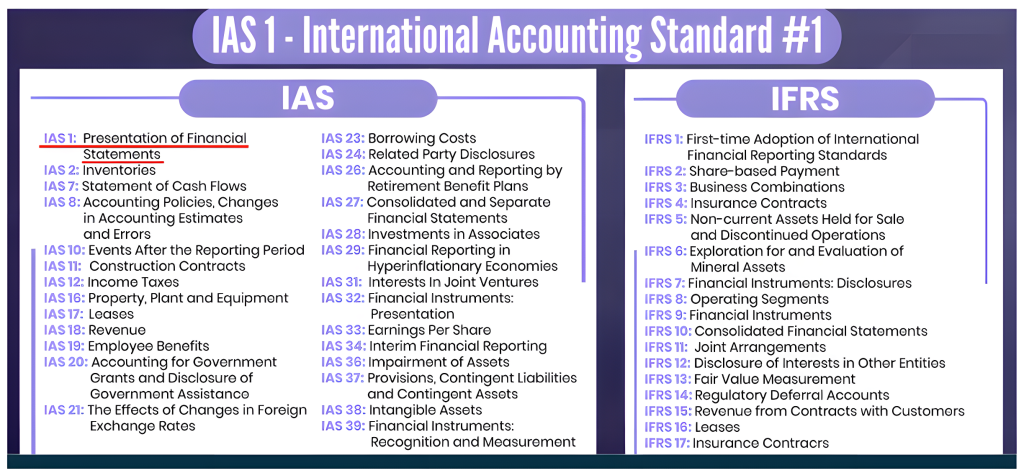Beyond the Balance Sheet: IFRS Compliance and Framework
Understanding International Financial Reporting Standards is crucial for ensuring IFRS compliance and maintaining uniformity in financial reporting across global markets. These standards dictate the accurate preparation of essential financial statements, fostering transparency and consistency. Adherence to IFRS compliance helps companies provide stakeholders with reliable and comparable financial information.
Join over 2 million professionals who advanced their finance careers with 365. Learn from instructors who have worked at Morgan Stanley, HSBC, PwC, and Coca-Cola and master accounting, financial analysis, investment banking, financial modeling, and more.
Start for FreeGrasping the International Financial Reporting Standards (IFRS)—including IFRS compliance—is essential for ensuring transparency and uniformity in financial reporting across global businesses. These standards guide the preparation of key financial statements, including the Balance Sheet, Statement of Comprehensive Income, Statement of Changes in Owners’ Equity, and Cash Flow Statement.
Purpose of Financial Reporting
Financial reporting primarily aims to provide valuable information to various stakeholders about a company’s financial position, performance, and cash flows. This is achieved by ensuring that financial statements and their footnotes conform to specific formats and exhibit common characteristics as outlined in the standards.
Core Principles of IFRS
Principle of Fair Presentation
The cornerstone of IFRS compliance is the fair presentation of financial statements. This principle requires that all business transactions and events be recorded by the standards governing the recognition of assets, liabilities, revenues, and expenses.
Fundamental Assumptions
Financial statements are prepared based on two critical assumptions: the going concern and the accrual basis of accounting. These assumptions support the continuity and comprehensiveness of the financial reporting process.
Materiality Principle
Under the materiality principle of IRS compliance, financial reports must be free from significant misstatements or omissions that could impact users’ decision-making process.

Specific Guidelines in IAS 1
Aggregation and Separation
IAS 1 mandates that similar items be aggregated and dissimilar items be separated in financial statements. For instance, while all trade receivables are summed up under one line item, receivables from related parties must be presented separately.
Prohibition of Offsetting
The standard prohibits offsetting assets against liabilities or income against expenses, except where expressly allowed or required by a standard.
Reporting Frequency and Comparatives
Entities must publish financial statements at least annually, per IFRS compliance, although public companies often report more frequently. Comparative information for prior periods is also mandated—enhancing the clarity and context of the reports.
Disclosure of Inconsistencies
Organizations must disclose inconsistencies in their financial statements’ presentation and classification of items. For example, the notes must clearly explain a change from measuring assets at historical cost to fair value.
Structuring Financial Statements
IAS No. 1 also outlines the required structure and minimal content of financial statements. For example, the Statement of Financial Position must list property, plant, equipment, cash equivalents, trade payables, and receivables. Similarly, the Statement of Comprehensive Income should detail revenues, expenses, profits or losses, tax expenses, and finance costs.
This structured approach to financial reporting under IFRS encompasses a broad range of IFRS compliance covering various aspects of financial reporting—including IFRS 16 lease accounting, IFRS 15 revenue recognition, and IFRS 9 finance instruments. Each standard addresses a specific area of accounting, aiming to ensure clarity, consistency, and comparability across financial statements globally.
IFRS Compliance: Ensuring Global Consistency in Financial Reporting
Adherence to International Financial Reporting Standards (IFRS) significantly enhances financial statements’ reliability, consistency, and comparability across global markets. By following the detailed guidance provided by standards like IAS 1, organizations ensure that their financial disclosures are transparent and comprehensive, facilitating better decision-making among investors, analysts, and other stakeholders.
The principles and guidelines outlined in IFRS—from the fundamental assumptions of accounting to specific reporting requirements, including IFRS compliance—form a robust framework supporting the integrity and efficacy of financial reporting internationally.
For those looking to deepen their understanding of these standards, joining the 365 Financial Analyst platform can provide invaluable resources and networking opportunities to further their careers in finance.
